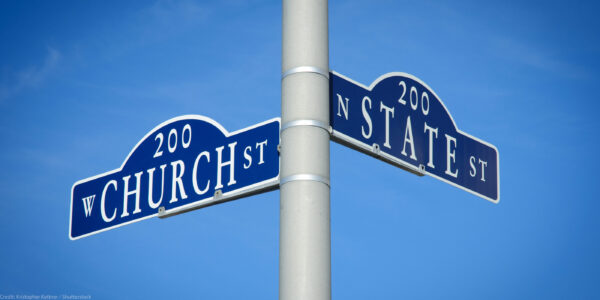Kentucky Cannot Erect Ten Commandments, Judge Rules
FRANKFORT, KY -- A federal judge on Tuesday prohibited the state from erecting a monument to the Ten Commandments on the Capitol grounds, saying it would amount to government endorsement of religion, the Associated Press reported.
``I think the purpose of this is not secular, but I think it is religious,'' U.S. District Judge Joseph Hood said of the monument, according to the AP -- a dark stone tablet six feet tall and four feet wide that was supposed to go up behind the floral clock.
Debate over the Ten Commandments dominated much of the state's 2000 legislative session. Efforts to force the schools to display the commandments were defeated, but a resolution that passed directed the state to display an old monument and encouraged schools and local governments to post the commandments.
The monument had been on display in a corner of the Capitol complex grounds from about 1971 to about 1988, when it was removed for construction of a heating and ventilating building. The monument has been in storage since that time.
The resolution directed that the monument be part of a display that includes ``historical and cultural'' materials that ``remind Kentuckians of the Biblical foundations of the laws of the commonwealth.''
Rep. Tom Riner, a Louisville Democrat, said Hood's ruling ignores history. ``The intent of the Legislature was not to indoctrinate the young people or citizens of the commonwealth, but simply to give credit to the source of our statutes historically,'' Riner said.
Hood noted there is little reference in Kentucky law to the first three commandments, which generally direct the recognition and honoring of a single deity.
``Obviously, not all of Kentucky law was founded on the Ten Commandments,'' Hood said.
David Friedman, a lawyer for the ACLU of Kentucky, which challenged the law, praised the decision.
``Government must remain neutral toward religion,'' he said.
The state has not decided whether to appeal Hood's ruling.

